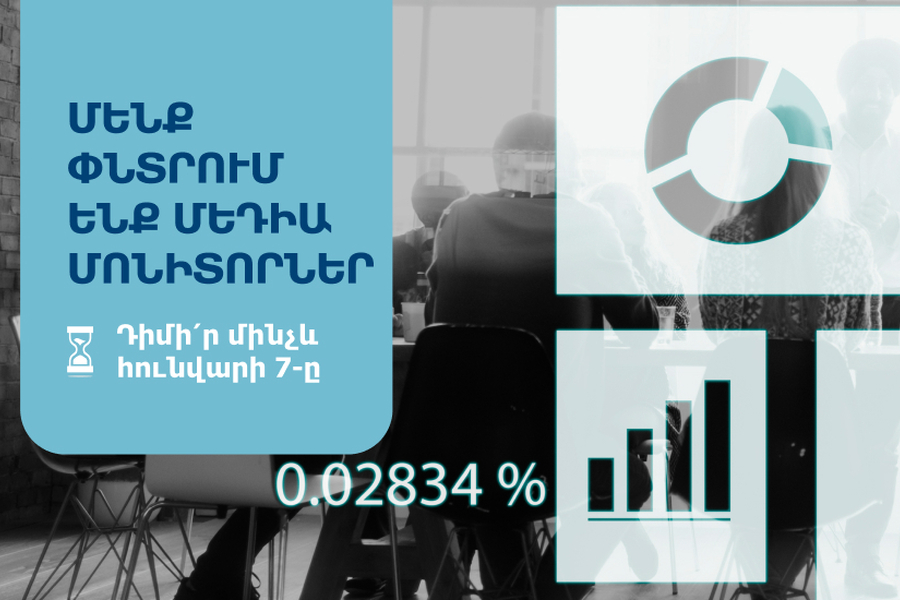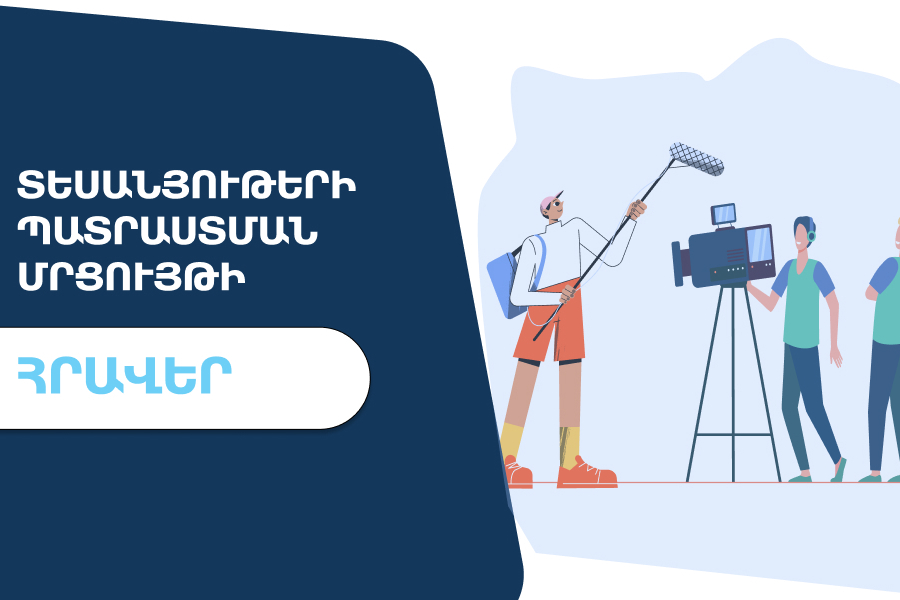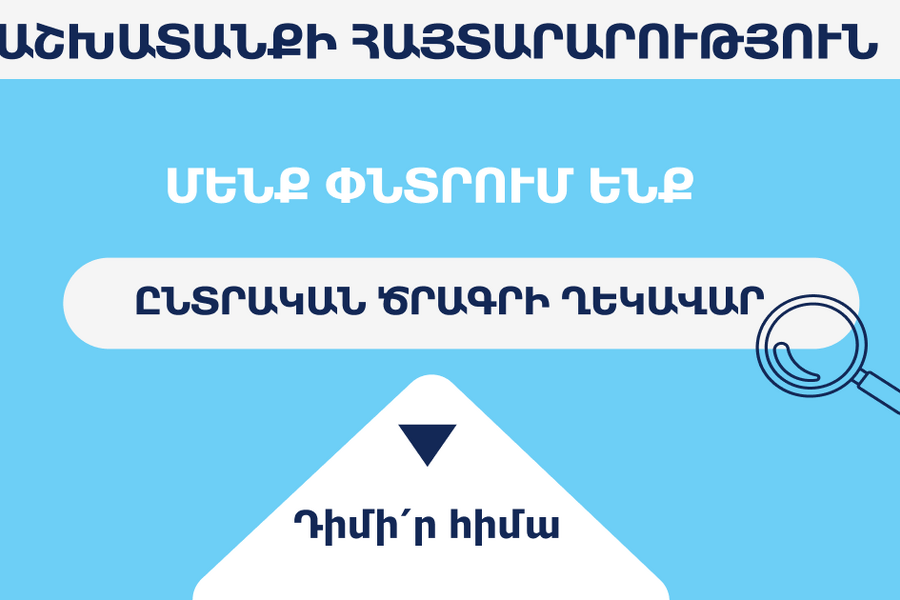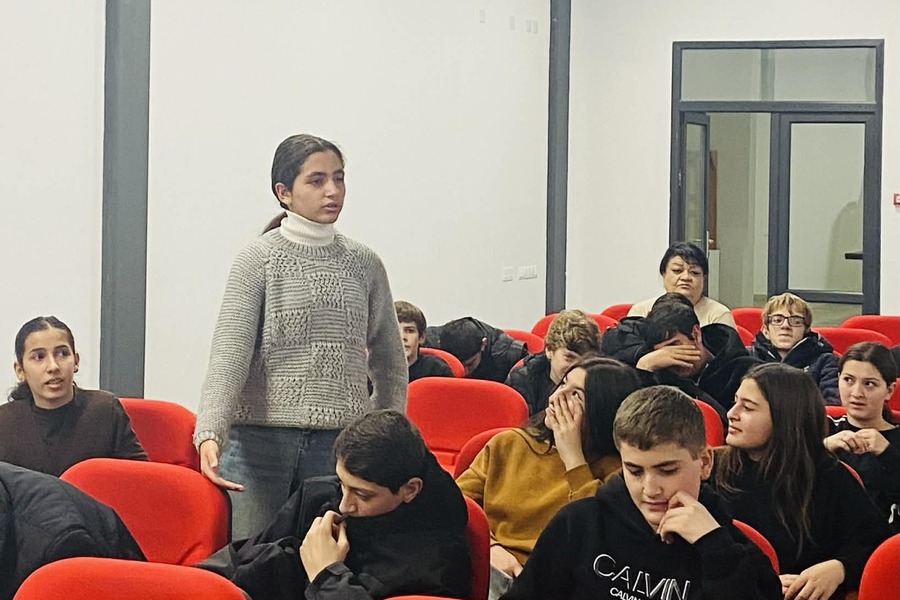9 December, 2019, Yerevan
On the occasion of the International Anticorruption Day, Transparency International Anticorruption Center (TIAC) organized a panel discussion on Fighting Corruption for Sustainable Development Goals, seeking to present and discuss the progress made by Armenia towards achieving UN Sustainable Development Goal 16. The event brought together 115 representatives from the government, international organizations, civil society and the media.
.jpg)
In her opening remarks Executive Director of TI Armenia, Sona Ayvazyan expressed hope that the discussion would be helpful to the public as well as the authorities in their anticorruption efforts. “Today’s discussion will largely focus on the anticorruption components of sustainable development goal 16 and we very much hope that the fight against corruption in Armenia will become more effective as the government has committed to undertake radical reforms in this regard,” she added. Armenian Prime Minister Nikol Pashinyan, US Ambassador Lynne Trace and UN Resident Coordinator for Armenia Shombi Sharp also delivered welcoming remarks to the event. While speaking of their efforts to eliminate systemic corruption in Armenia,

Greeting the participants, PM Pashinyan said: “Soon after I was elected Prime Minister of the Republic of Armenia, even days after I was elected, I declared that there was no more systemic corruption in the Republic of Armenia. I would like to reaffirm it today and explain what I meant by saying systemic corruption. In my view, systemic corruption is when every single income in the corruption scheme keeps flowing upwards to some extent and reaches the top of the pyramid.
PM Pashinyan underlined his government had the political will not to just simply fight corruption “but to root it out for good.”
See PM Pashinyan's speech

US Ambassador Lynne Tracy welcomed the Armenian government’s efforts against corruption and noted that “the US government is committed to supporting the rule of law and anticorruption efforts in thebareas where we can be most effective.”
Shombi Sharp, UN Resident Coordinator for Armenia highlighted the damages inflicted by corruption and the global significance of fighting it. “Every year, trillions of dollars – the equivalent of more than 5% of global GDP – are paid in bribes or stolen through corrupt practices that seriously undermine the rule of law and abet crimes such as the illicit trafficking of people, drugs and arms,” Mr. Sharp noted.

TI Armenia expert Khachik Harutyunyan then went on to present a report prepared by TIAC on the progress Armenia has made towards achieving sustainable development goal 16 targets. The report includes a range of recommendations for Armenia in the areas of the fight against money laundering, transparency of beneficial owners, recovery of stolen assets, combating organized crime, corruption experience and perceptions, anticorruption system and institutions and other issues.

Four subsequent panel discussions touched upon the aforementioned issues in far more details, presented the issues and proposed different solutions regarding the following targets of SDG 16:
During Panel Discussion: “Substantially reduce corruption and bribery in all their forms” (SDG 16, target 16.5), moderated by Sona Ayvazyan, Haykuhi Harutyunyan, Chairperson of Commission for the Prevention of Corruption focused on key issues related to corruption prevention; Srbuhi Galyan, RA Deputy Minister of Justice addressed measures ensuring effective detection and conviction of corruption cases. Attorney Karapet Badalyan spoke about key issues in the judiciary from the corruption perspective and the effectiveness of proposed reforms; while Hamazasp Danielyan, MP from the National Assembly of Armenia examined proposed reforms for the integrity of political parties.

Panel Discussion: “Reduce illicit financial flows, return stolen assets and combat organized crime” (SDG 16, target 16.4) was moderated by Hayk Martirosyan, TIAC Legal Expert. Daniel Azatyan, the Head of Financial Monitoring Center (FMC), Central Bank of Armenia, introduced the progress made in fight against money laundering and terrorism; Lilya Afrikyan from Prime Minister's Office, Department of External Relations and OGP Armenia Working Group Secretary presented Progress towards beneficial ownership disclosure; Andranik Manukyan, Deputy Head of the Department for Combating Corruption Crimes from Prosecutor General’s Office of Armenia examined asset recovery practice and transparency.

Panel Discussion: “Develop effective, accountable and transparent institutions” (SDG 16, target 16.6), moderated by Varuzhan Hoktanyan, TIAC Project Director, started by presentation of TIAC Expert Armen Khudaverdyan on key issues on the integrity of public governance; Karen Brutyan, RA Deputy Minister of Finance reflected on steps to promote financial transparency and accountability. Audit Chamber’s performance efficiency following the 2018 revolution was in the focus of the address of Karen Arustamyan, Head of Department, Methodology, Analysis and International Relations Department of Armenia’s Audit Chamber. Arpine Sargsyan, Head, RA Ministry of Justice Department for Drafting Anti-Corruption and Penitentiary Policies introduced effectiveness of the whistleblowing system and steps to promote it.

The final Panel Discussion: “Ensure public access to information and protect fundamental freedoms” (SDG 16, target 16.10) was moderated by Sona Ayvazyan. Speaker Davit Gyurjyan from Law Development and Protection Foundation dwelt on transparency of information. Marina Malkhasyan from UNDP spoke about access to information in the context of assessing progress in achieving SDG implementation. Ashot Melikyan, Chairperson of Committee to Protect Freedom of Expression presented issues related to freedom of expression. The panel was concluded by Hasmik Harutyunyan from Protection of Rights without Borders NGO, who spoke about investigation of cases related to violations of the rights of journalists and civil society representatives.

Deputy Speaker of the National Assembly of Armenia, Lena Nazaryan gave closing remarks to the event. Addressing the problem of corruption, Mrs Nazaryan particularly noted that there was no longer a political patronage of corruption in Armenia. “In our perception corruption is not only a legal violation, a crime, a deplorable phenomenon but also a personal insult: we see it as an insult to our dignity,” Mrs. Nazaryan concluded.
The expert panel discussion organized by TIAC on International Anti-corruption Day was implemented in the frameworks of the Engaged Citizenry for Responsible Governance Project carried out with support from USAID.
See Sustainable Development Goal 16: Recommendations developed by TIAC






